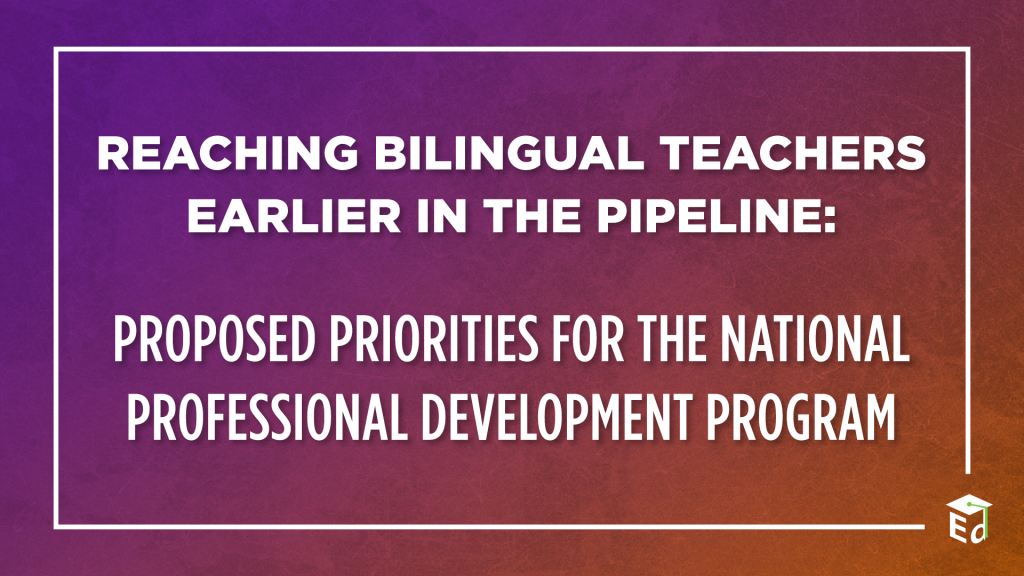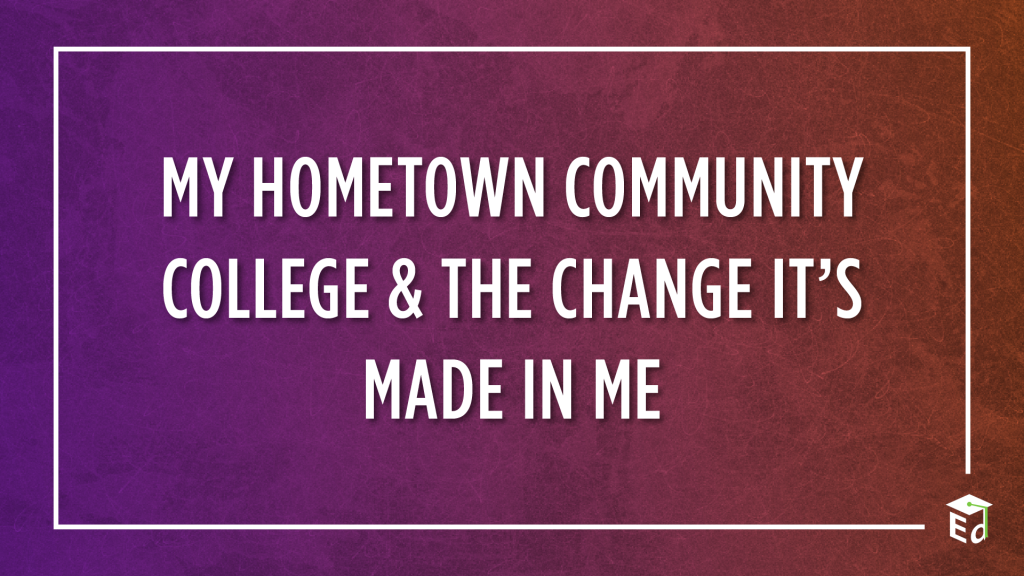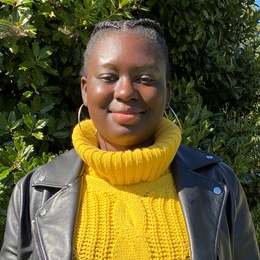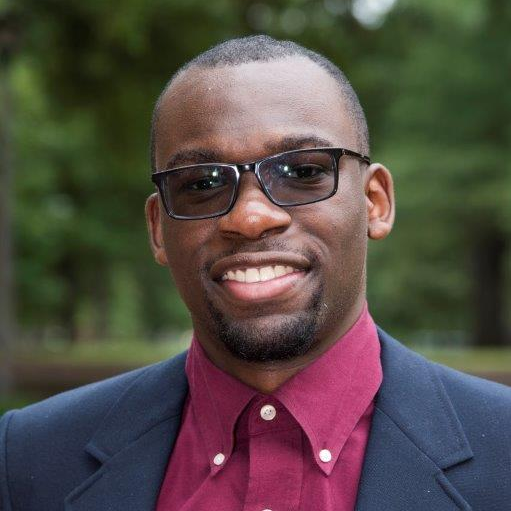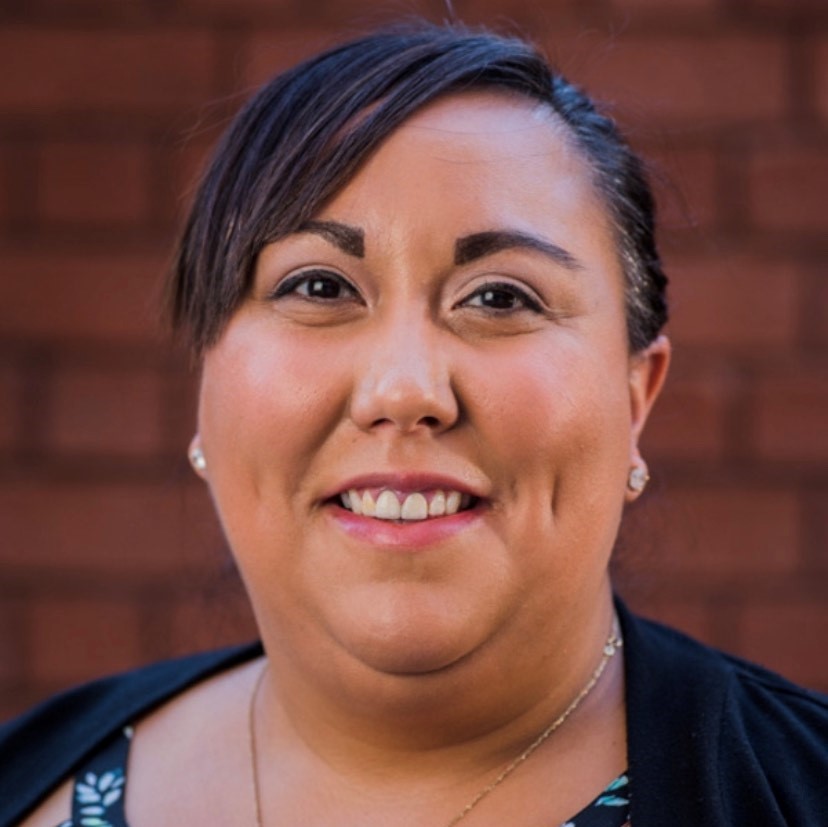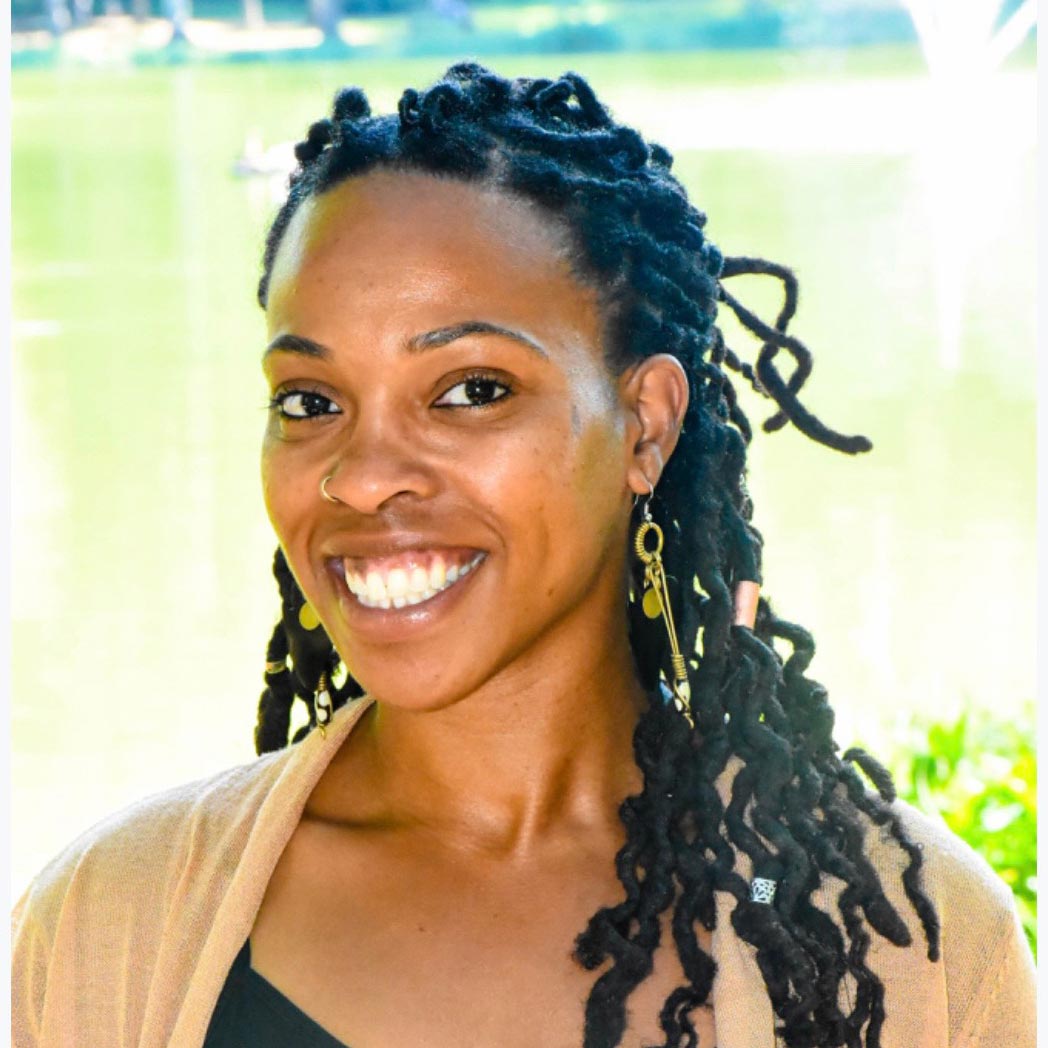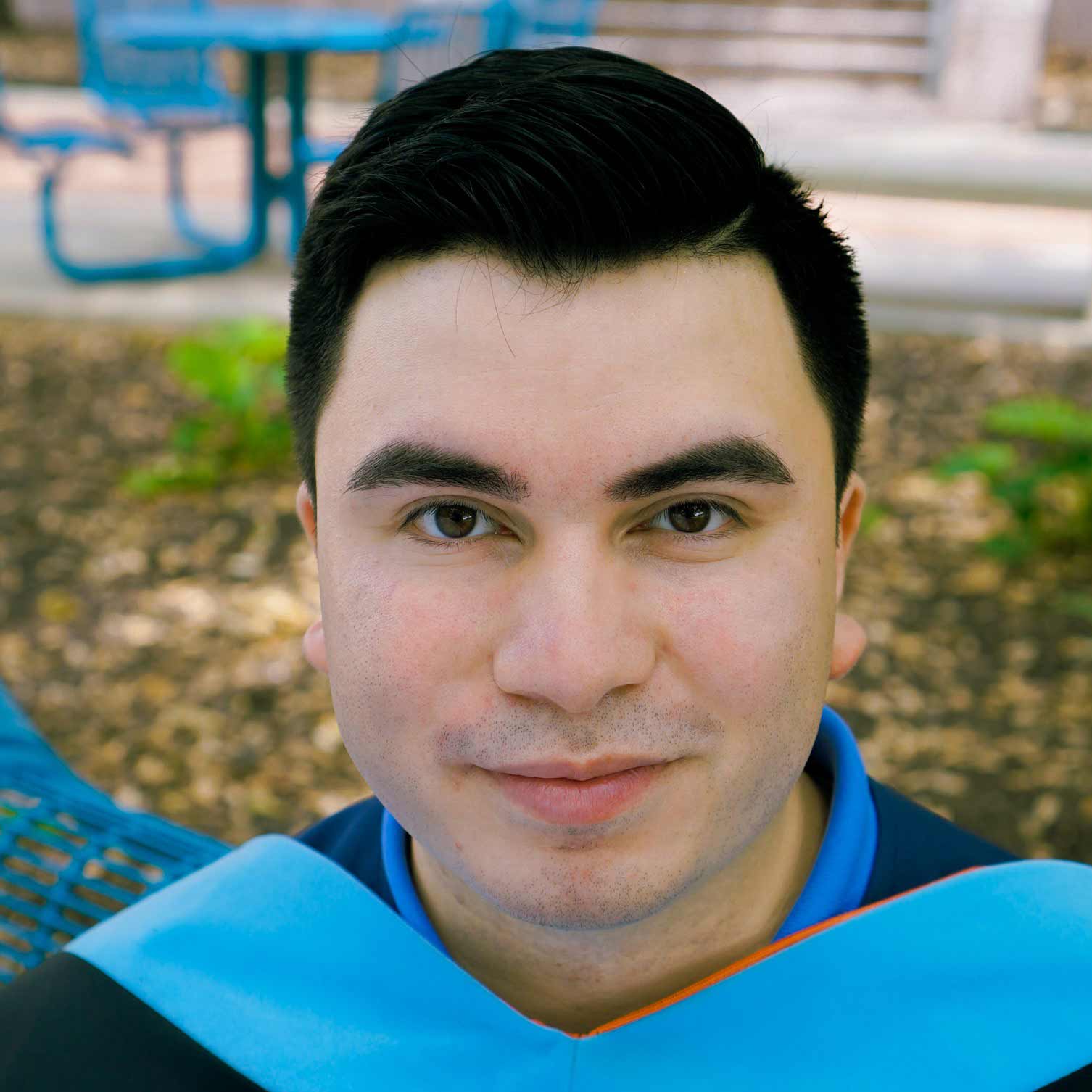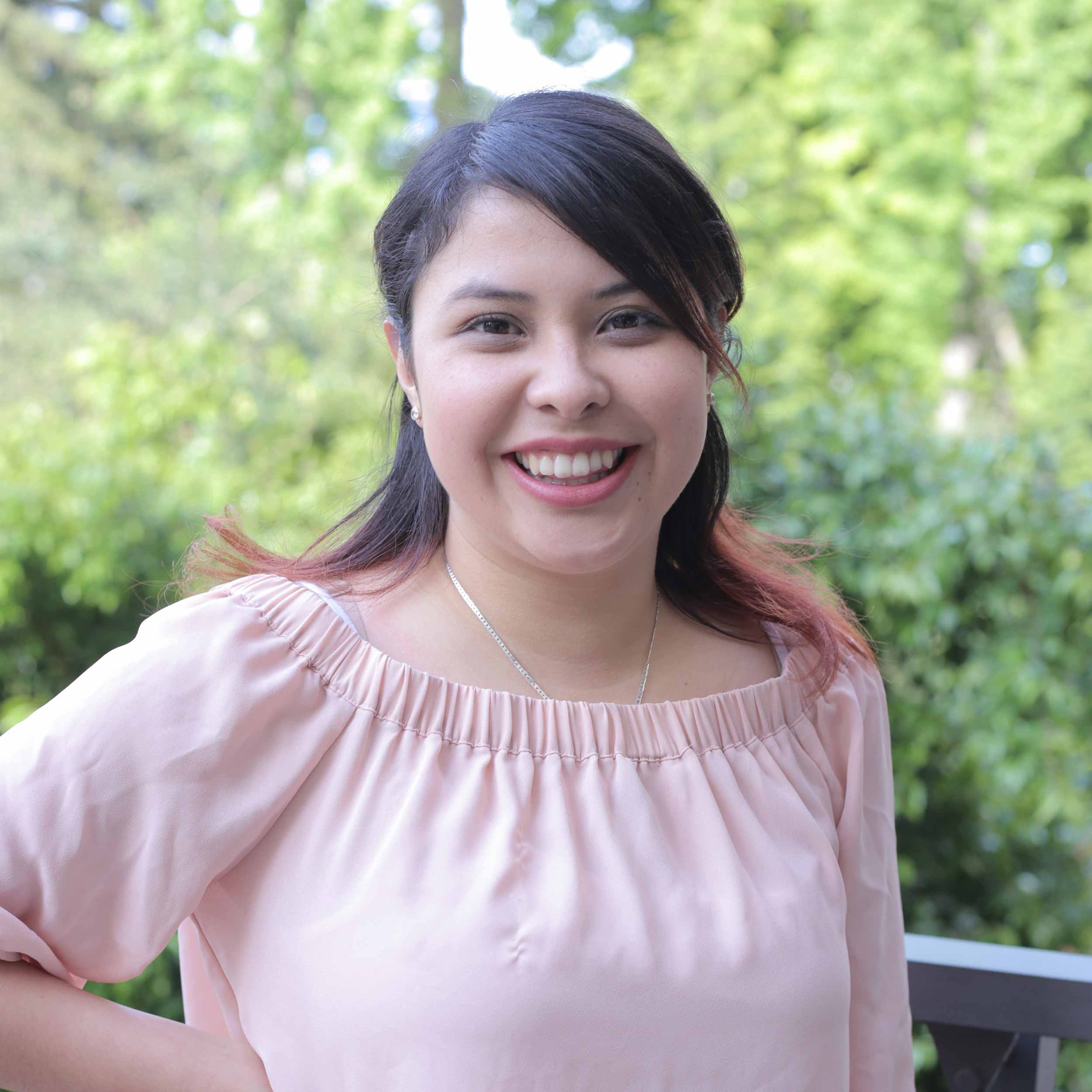This is crossposted from the U.S. Department of Education blog, Homeroom
The U.S. Department of Education Invites Applications for NPD Competitive Grant
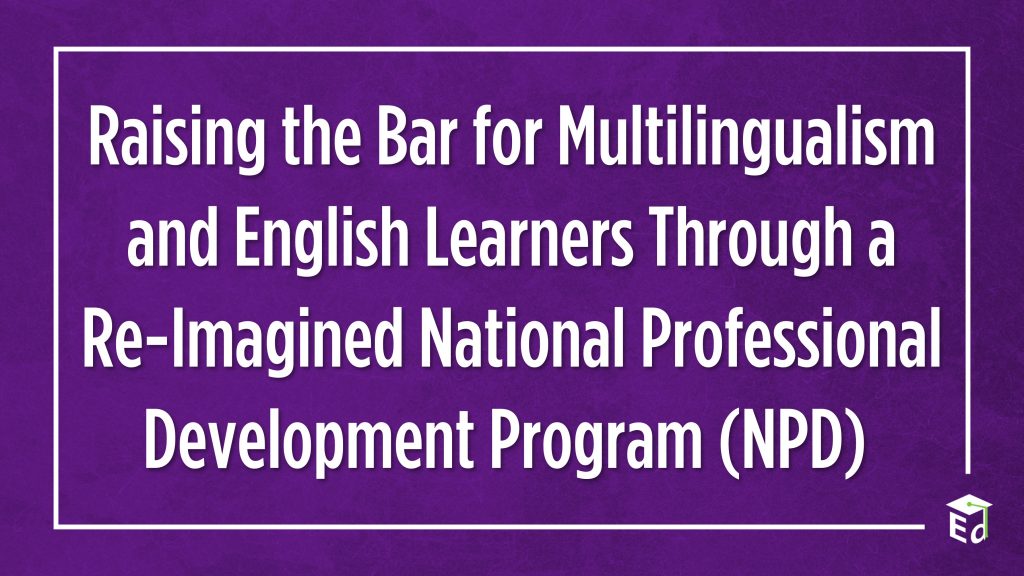
By: Beatriz Ceja, Deputy Assistant Secretary, Office of English Language Acquisition (OELA) and Loredana Valtierra, Policy Advisor, Office of Planning, Evaluation and Policy Development (OPEPD)
The need for bilingual and multilingual teachers is critical more than ever, as over five million of our public-school enrolled students are English learners (ELs). “Raise the Bar (RTB): Lead the World” Initiative is the U.S. Department of Education’s (Department) call to action to transform pre-kindergarten through postsecondary learning and unite around what truly works. The National Professional Development (NPD) program, administered by the Office of English Language Acquisition, is ready to respond to the call. Investments in programs that promote academic excellence to boldly improve teaching and learning will increase our global competitiveness.
The NPD program is a competitive grant program that provides funding to support the implementation of pre-service and in-service professional development activities intended to improve instruction for ELs and assist education personnel working with ELs to meet high professional standards. This competitive grant through new rulemaking is focused on the development and support for bilingual and multilingual teachers. The Notice Inviting Applications, which was recently published in the Federal Register on March 12, 2024, aligns with the education priorities of the Biden-Harris Administration and the Department’s goals to ensure that ELs have access to well-prepared educators and growing the number of qualified bilingual and multilingual educators needed to expand the availability of bilingual program. An $8.4 million dollar investment, this effort seeks to support pre-service training programs for teachers, paraprofessionals, administrators, and aspiring educators, including high school students, who want to become fully certified as bilingual or multilingual educators.
For both Beatriz Ceja, Deputy Assistant Secretary for the Office of Language Acquisition (OELA) and Loredana Valtierra, Policy Advisor for the Office of Planning, Evaluation and Policy Development at the Department, this work is fueled by personal experience.
When reminiscing on her experience, Beatriz said, “I remember walking into the classroom on my first day of kindergarten ready to learn. I didn’t speak English at the time and my kindergarten teacher did not speak Spanish. While kind, she sat me down with the other students who didn’t speak English and together we tried to make sense of this new experience. I felt unseen and felt embarrassed for not speaking English. In those days, I was pulled out of the classroom for hours with the rest of the Spanish speaking students to learn English. At some point I learned enough English to participate with the larger group and the pull-out time was decreased. Years later I would become a bilingual teacher and recognized the importance of making families and especially EL students feel welcomed into our schools by acknowledging and valuing their native language”.
Loredana shared a similar sentiment, “In sixth grade, I was a bilingual kid who attended a predominantly white school district. That I spoke another language at home seemed irrelevant and unnoticed until one day, a newcomer student arrived from Honduras who could only speak Spanish at the time. Not a single adult who taught us could speak to her and I was assigned to be her interpreter. We shared the same schedule, sat next to each other in every class, and suddenly had the eyes and ears of our white peers on us at every moment. Sometimes it wasn’t so kind, but my new classmate couldn’t understand that. I felt alienated and disappointed by our ‘very good school district’. How did we live in America, and nobody was prepared to receive students like her? I still think of her and know that for every lonely feeling I held, she likely felt more.”
This reimagined NPD came out of recognizing the shortage of multilingual teachers and a gap in federal policy to specifically address the need, while a growing number of public-school students speak a language other than English at home. We hear about this need from so many school communities. The education field has often missed or overlooked the growing talent among our bilingual paraprofessionals and young people in their own backyards, as a pool of bilingual and multilingual future teachers. This is the talent of potential educators that we need to tap into, inspire, and support.
We need to uplift the assets bilingual communities bring to our schools like their heritage language and culture. The hope is that students like Loredana’s classmate and children like Beatriz are seen and that they truly have access to high quality educational opportunities.

